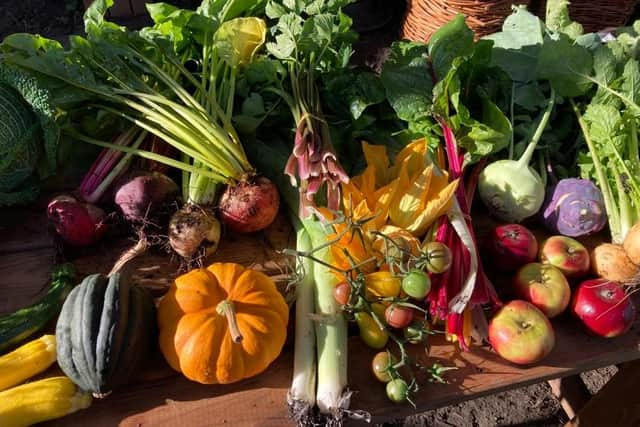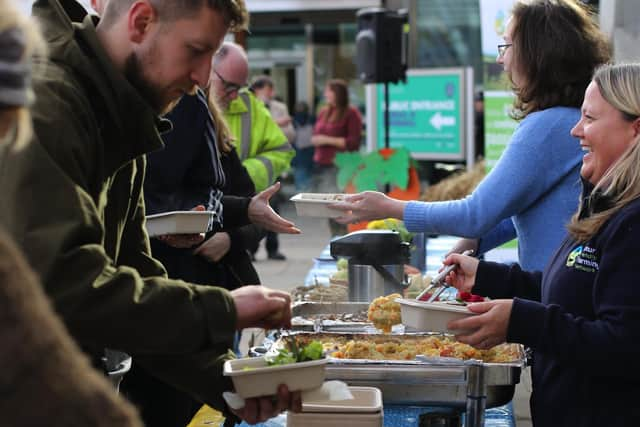Scottish farmers and crofters serve up outdoor feast at Holyrood in demonstration calling for financial support for green smallholders
They are demanding removal of the minimum size eligibility requirement for new subsidy schemes, highlighting the importance of small operations using green production methods in the drive to tackle climate change.
They are also calling for other measures to back small enterprises, including an income support scheme, more inclusion in political decision-making and funding for farms which provide fresh fruit and vegetables to their local communities.
Advertisement
Hide AdAdvertisement
Hide AdSupport payments for farmers in Scotland are currently based on the area of land they work, with a minimum eligibility threshold of three hectares.
This means small crofts and farms – including many horticulture businesses, market gardens and peri-urban farms – receive no financial help from the government.
But these smallholders play an important role in creating sustainable and eco-friendly food systems for their neighbourhoods, according to campaigners.
A spread of locally produced food was served up in the grounds of the Scottish Parliament in Edinburgh as part of the rally, with politicians from all parties and civil servants in attendance.
The aim of the event – organised by the Landworkers’ Alliance, a union representing more than 2,200 members across the UK; Nature Friendly Farming Network; Scottish Crofting Federation, Propagate, a worker-led collective specialising in local, community and sustainable food projects; and ecological charity Soil Association Scotland – was to raise awareness and demonstrate the benefits of small-scale agroecological practice and localised food systems.


“The model of large-scale industrialised agriculture is a failed experiment,” said Patrick Krause, chief executive of the Scottish Crofting Federation.
“It is time to recognise the sustainability of smaller-scale food production and all the cross-policy benefits it brings. If Scotland is to be a leader, this is how.”
Tara Wight,Scotland policy and campaigns coordinator for the Landworkers’ Alliance, said: “During times of crisis such as this, it is community resilience and local food systems built on a bedrock of small-scale agriculture that will see us through. The Scottish Government needs to realise that investing in small-scale is investing in a resilient and sustainable food future for Scotland.”
Advertisement
Hide AdAdvertisement
Hide AdRuth Aston-Shaw, from Low Auldgirth Steading in Dumfries, said: “Small farms use fewer external inputs and produce higher nutritional yields per acre than their larger counterparts.


“I know this because I run one of these small-scale organic regenerative farms. I see first-hand the difference my small farm can make, where every progressive change – however small – sends ripples through our landscape, through our communities and into the wider society.”
Bryde Marshall, of Falkland Kitchen Farm in Fife, added: “I am really proud to be on two hectares yet feeding 100 households for 11 months of the year.
“Being small allows us to manage a really complex, diverse ecosystem, and growing a diversity of crops in turn allows us to provide a nutritious diet for our customers. It also gives us a lot of resilience against different weather conditions, pests and diseases.”
The Scottish Government is currently running a public consultation on proposals for the forthcoming Agriculture Bill, which will close on 21 November.
The demonstration was part of a Europe-wide series of Good Food, Good Farming mobilisations.
Comments
Want to join the conversation? Please or to comment on this article.